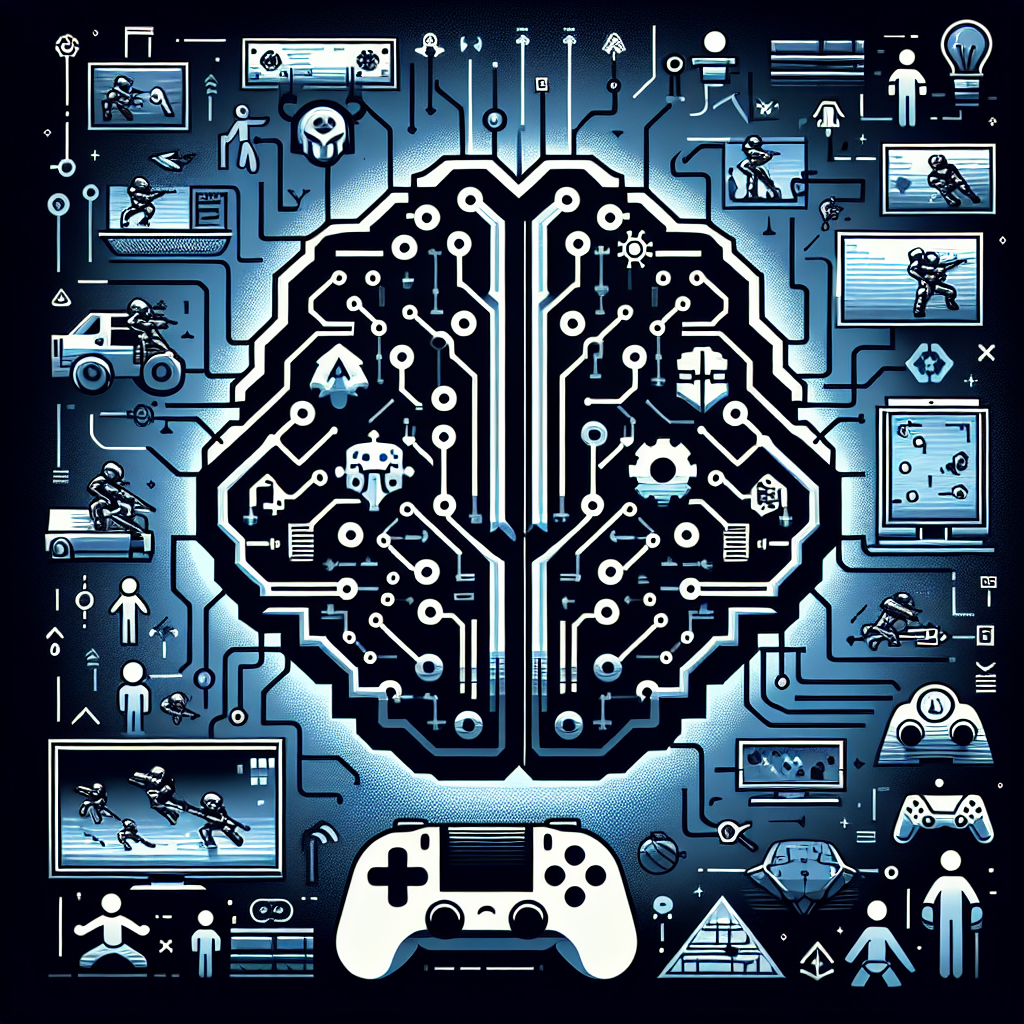Artificial intelligence (AI) has been revolutionizing the gaming industry, particularly in the realm of player behavior. With advancements in AI technology, game developers are now able to create more immersive and interactive experiences that adapt to the player’s actions and decisions. This has led to a more dynamic and engaging gameplay experience, as players are no longer restricted to pre-determined paths or outcomes.
One of the key ways in which AI is influencing player behavior in games is through the use of adaptive algorithms. These algorithms are designed to analyze the player’s actions and adjust the game’s difficulty level accordingly. For example, if a player is consistently performing well in a game, the AI may increase the difficulty to provide a greater challenge. On the other hand, if a player is struggling, the AI may lower the difficulty to help them progress through the game.
Another way in which AI is shaping player behavior is through the use of personalized content. By analyzing a player’s preferences and gameplay habits, AI algorithms can generate customized content that is tailored to the individual player. This can include personalized challenges, quests, or rewards that are designed to keep the player engaged and motivated.
AI is also being used to create more realistic and lifelike non-player characters (NPCs) in games. These NPCs are equipped with advanced AI algorithms that allow them to exhibit complex behaviors, emotions, and personalities. This makes interactions with NPCs more dynamic and unpredictable, as their responses are not predetermined but instead influenced by the player’s actions and decisions.
Furthermore, AI is being used to enhance player engagement and retention in games. By analyzing player data and behavior patterns, AI algorithms can identify trends and insights that can be used to optimize game design and mechanics. This can lead to the creation of more compelling and addictive gameplay experiences that keep players coming back for more.
Overall, AI is playing a crucial role in shaping player behavior in games, leading to more immersive, interactive, and personalized gaming experiences. As AI technology continues to advance, we can expect to see even more innovative applications of AI in gaming that further enhance the player experience.
FAQs:
Q: How does AI impact player behavior in games?
A: AI impacts player behavior in games by analyzing player actions and adjusting the game’s difficulty level, generating personalized content, creating realistic NPCs, and enhancing player engagement and retention.
Q: What are some examples of AI in games?
A: Examples of AI in games include adaptive algorithms that adjust difficulty levels, personalized content generation, lifelike NPCs, and data-driven game design optimization.
Q: How does AI improve player engagement in games?
A: AI improves player engagement in games by analyzing player data and behavior patterns to optimize game design and mechanics, creating more compelling and addictive gameplay experiences.
Q: What are some future applications of AI in gaming?
A: Future applications of AI in gaming may include more advanced adaptive algorithms, personalized content generation, lifelike NPCs with emotional intelligence, and data-driven game design optimization.
In conclusion, AI is revolutionizing the gaming industry and shaping player behavior in games in a variety of ways. From adaptive algorithms to personalized content generation, AI is enhancing the player experience and creating more immersive and interactive gameplay experiences. As AI technology continues to advance, we can expect to see even more innovative applications of AI in gaming that further elevate the player experience.

